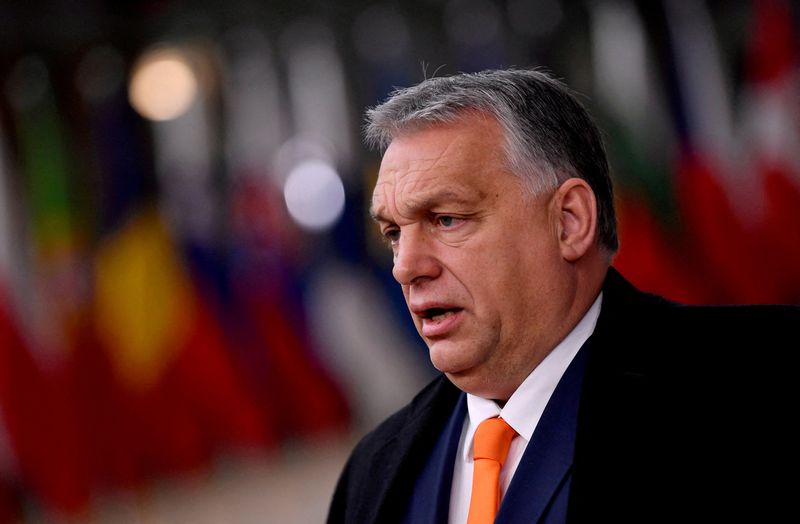By Krisztina Than
BUDAPEST (Reuters) – A top aide to Prime Minister Viktor Orban has sparked outrage by suggesting Hungary would have done better if it had not resisted the 1956 Soviet invasion, in comments that were also critical of Ukraine's current efforts to push back Russian troops.
Orban, a nationalist who rose to fame in 1989 by demanding the withdrawal of Soviet troops from Hungary, said his aide's “ambiguous” words had been a mistake, while the leader of Hungary's opposition condemned them as “treasonous.”
Orbán's political director Balazs Orban, who is not related to the veteran prime minister, said in an interview with the website Mandiner this week that Ukrainian President Volodymyr Zelensky had acted irresponsibly by choosing to oppose the Russian invasion in February 2022, causing a war had ensued that resulted in many deaths.
“Given 1956, we probably wouldn't have done what President Zelensky did 2.5 years ago, because it is irresponsible. We can see that he led his country into a defensive war, many lives were lost and territories were lost,” the aide said.
“Let me say it again: it is their right and sovereign decision… but if they had asked us, we would not have recommended this, based on what happened in 1956,” he added.
The Hungarian anti-Soviet uprising in 1956 was brutally suppressed by the Red Army. The anniversary of the uprising, October 23, is an important national day for Hungarians.
During a speech on national radio, the Prime Minister said on Friday that it is important to speak “very carefully and clearly” about issues that are so sensitive.
“Now my political director has made an ambiguous statement that is a mistake, as our community stands on the foundation of the 1956 revolution and has grown from it,” said Orban, who has made national sovereignty a cornerstone of his rule.
As in the past, Hungary will “always defend itself,” he added.
'SCANDALING'
Orban has upset Hungary's NATO allies by maintaining strong economic ties with Russian President Vladimir Putin even after Moscow's invasion of Ukraine. Hungary has also refused to send weapons to Ukraine under Orban.
Balazs Orbán did not respond to Reuters' emailed questions. In a video on his Facebook page, the aide said his words were “intentionally misinterpreted”, adding that “the heroes of 1956 are national heroes and their memory is sacred”.
But his comments caused an uproar in the opposition and in the media, with Hungary's leading opposition figure Peter Magyar saying in a Facebook post that the aide “no longer has a place in public life after his outrageous and treasonous comments.”
Magyar said the aide had “humiliated the memory of thousands of Hungarian freedom fighters”.
(Reporting by Krisztina Than, Anita Komuves and Gergely Szakacs; Editing by Gareth Jones)

